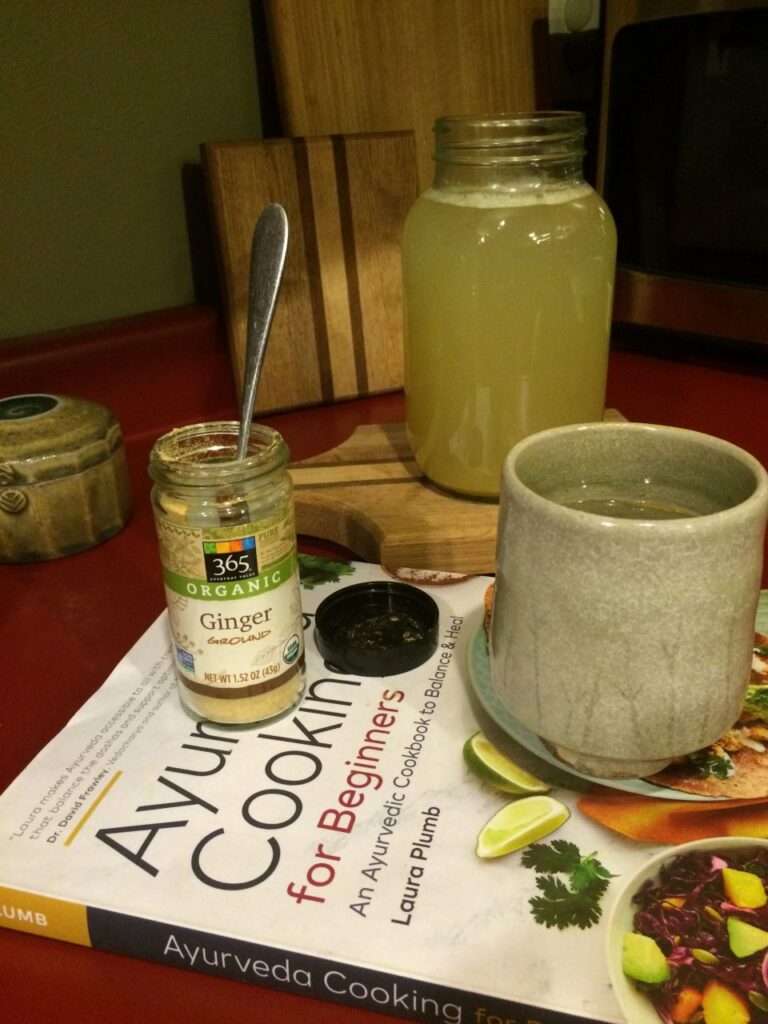The Medicine of Yoga

Yoga has many aspects, and some of you might have heard of the medicinal aspect of Ayurveda (ayur=life and veda=knowledge). Patanjali, who is known for the writing of The Yoga Sutras was also thought to be an expert in the knowledge of Ayurveda as well. Like yoga, Ayurveda is based on our “nature” as a combination of the elements and energies that exist in all things. We are all born with certain “natures”, called doshas, but in living life, we are always seeking a balance of all the elements. According to Ayurveda, disease and disturbance of any kind can be attributed to an imbalance in the elements and can be alleviated by changing diet and lifestyle that will balance our own specific dosha.
To find out your specific dosha, there are many online options and quizzes to get close, but the “official” diagnostic test for your dosha usually comes from a certified Ayurvedic doctor and includes the taking and feeling of your pulse. I have taken different tests and also seen an Ayurvedic doctor a couple of times, and I fall into the Kapha/Vatta (earth and air) combination. Since many of you have some time, it might be fun to discover your own!
However, even if you do not know your specific dosha, there are many things that Ayurveda provides for ALL TYPES. Hallie Evans has given us the following recipe to enjoy as we are all experiencing cold weather again and looking for anything to boost our immune system!
Ginger, Honey and Lemon Tea
From Ayurveda Cooking for Beginners-An Ayurvedic Cookbook to Balance and Heal
-by Laura Plumb
Serves 21
(1 inch) piece of fresh ginger
4 c water
Juice of 1 lemon
2 T raw honey
Ingredient tip: Ginger is known for it capacity to warm, heal, nurture and restore. Fresh ginger is hotter than powdered ginger. If you don’t have fresh ginger but want the same strength, stir ½ teaspoon ground ginger into warm water until you get the heat you seek.
- Peel and chop the ginger into chunks and put it in a pot with the water. Cover and bring to a boil, then reduce the heat to low and simmer for 10 minutes. Turn off the heat and steep for another 5 minutes.
- Once the tea has cooled enough to sip, stir in the lemon juice. Strain the tea and discard the ginger chunks.
- Ladle yourself a cup of tea. Stir in 1 T of honey per serving.
“Pungent, sour, sweet and warm, this tea is as medicinal as it is comforting. To keep your immune system strong, drink daily in Winter and Spring. To counter a cold, sip throughout the day.”
Hallie is not usually one for recipes and has a bit of a resistance to actual measurements. She bakes bread and loves to cook, but alters almost every recipe she uses. This one is no different. For instance, this tea calls for fresh ginger and lemon, but right now it’s a little hard to run to the store for fresh ingredients every couple days. Hallie suggests using bottled lemon juice and ground ginger to varying amounts that are conducive to your taste. She also tends to put less honey per serving that the recipe calls for. So, find your own perfect balance of the elements in the recipe according to taste or even according to your newly discovered dosha!
Drink up, Enjoy, and Stay Well !
